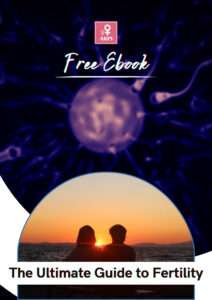Polycystic ovary syndrome (PCOS) or Polycystic Ovarian Disorder (PCOD) is a very common disorder that many women first learn about while seeking the cause of their infertility. Let’s take the case of Malina, a 26 year old woman working in a company in Pune. With over 8 hours of daily working at the office coding into a computer, and with a 5 year working history, Malina soon found out that she had PCOD.
So what does Malina, and the many women affected by PCOD need to do?

Obstetrics and Gynaecology: All about PCOD
One of the main causes of ovarian infertility among women is PCOD, Polycystic Ovarian Disorder. PCOD happens because of sedentary lifestyles and long sitting hours. In today’s world most of the women go to work, and they have to sit in the same position in a chair for long hours that makes the woman prone to polycystic ovarian disorder.
Did You Know? 116 million women in the world are affected by PCOD according the estimations of WHO (World Health Organisation). And 18% of women in India have PCOD according to a study conducted by Metropolis Healthcare.
The major symptoms of Polycystic Ovarian Disorder can be acne, increase in weight, hair fall, irregular periods, etc. Polycystic Ovarian Disorder also makes women vulnerable to diseases like delivery complications, diabetes, etc.
Moreover, Polycystic Ovarian Disorder is also caused because of lack of exercise and unhealthy eating habits. Hence taking a balanced diet and exercising regularly can reduce the risk of PCOD among women.

Need For Awareness: What You Can Do?
There have been some initiatives taken for the awareness on PCOD these days. As gynecologists and fertility experts, we have repeatedly discussed this sensitive topic in various forums. We have shared tips and tricks to avoid Polycystic Ovarian Disorder.
But basically, it is a balanced diet and some easy exercises that can be done while working to prevent the onslaught of PCOD.
Want To Know More About Obstetrics & Gynaecology?
IJOGR is a pre reviewed journal which publishes original journals six times in a year. All the aspects of Obstetrics & Gynaecology are published in IJOGR, such as family welfare, infertility, ultrasonography, etc. And all the articles published in the journal have scientific merit and contain basic research on the aspects of Obstetrics & Gynaecology.
You can access the journal to know more or consult with a specialist to address your queries.

